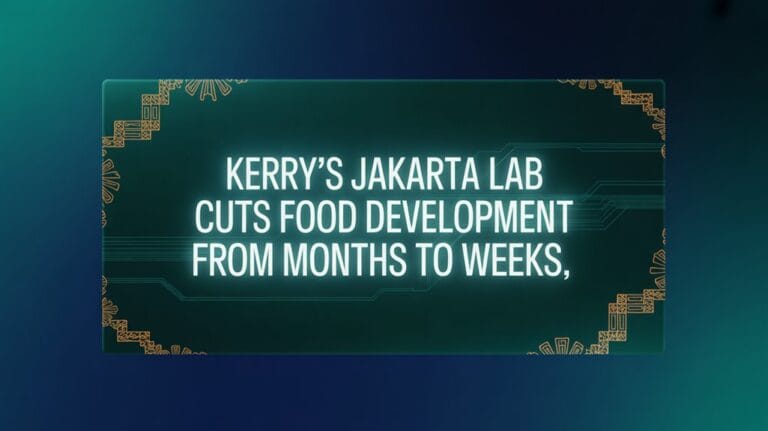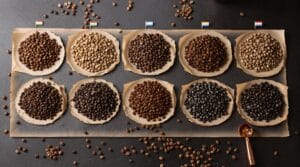Kerry Group opened its expanded Jakarta research hub on July 24, 2025, marking a bold step in Southeast Asia’s food innovation race. The 1,200-square-meter facility combines offices, labs, and a sensory suite to focus on flavor innovation and consumer engagement. Dedicated labs for sweet and savory products allow quick development of foods reflecting Indonesia’s tastes, while the sensory suite tests textures and aromas with precision.
Kerry Group’s Jakarta R&D hub expansion accelerates Southeast Asian food innovation with labs and sensory tools tailored to Indonesia’s culinary landscape.
At its co-creation lab, food scientists collaborate directly with customers to tackle evolving preferences—a shift from traditional solo R&D methods.
The expansion reflects Kerry’s push to lead in Southeast Asia’s fast-changing food sector. Indonesia’s central location gives access to its 270 million consumers and neighbors like Vietnam and Thailand. With 7.15% of Indonesia’s GDP tied to food and beverage production, the hub aims to accelerate regional product launches while keeping costs competitive. Analysts say this challenges older factories still relying on slower, less flexible processes.
The site also supports Indonesia’s ‘Making Indonesia 4.0’ plan, which targets food industry modernization to enhance economic growth.
Focusing on local ingredients and healthier recipes, Kerry’s team investigates sustainable solutions for low-cost nutrition—a priority in a region where dietary habits are shifting. The facility itself embodies environmental responsibility, currently undergoing LEED Gold certification for features like energy-efficient lighting and smart energy management systems. The labs use real-time feedback from taste panels in their sensory suites, blending tradition with science.
For instance, they’re testing plant-based alternatives to popular street foods and reducing sugar without losing flavor appeal. This approach mirrors trends across Southeast Asia, where demand for clean-label snacks and affordable proteins is rising.
Investment in faster prototyping tools helps manufacturers adapt to trends within weeks instead of months. This mirrors Kerry’s parallel investment in a Digital Centre of Excellence in Naas, Ireland, where a €7.5m grant is fueling AI and data analytics projects to streamline global R&D processes. Co-creation projects let clients tweak recipes alongside experts, ensuring products align with cultural preferences from day one. While small-scale food makers once struggled to access such resources, Kerry’s model opens doors for local brands aiming to compete regionally.
The hub’s launch arrives as Southeast Asia’s food sector hits $300 billion annually, driven by younger consumers seeking both novelty and familiarity.





